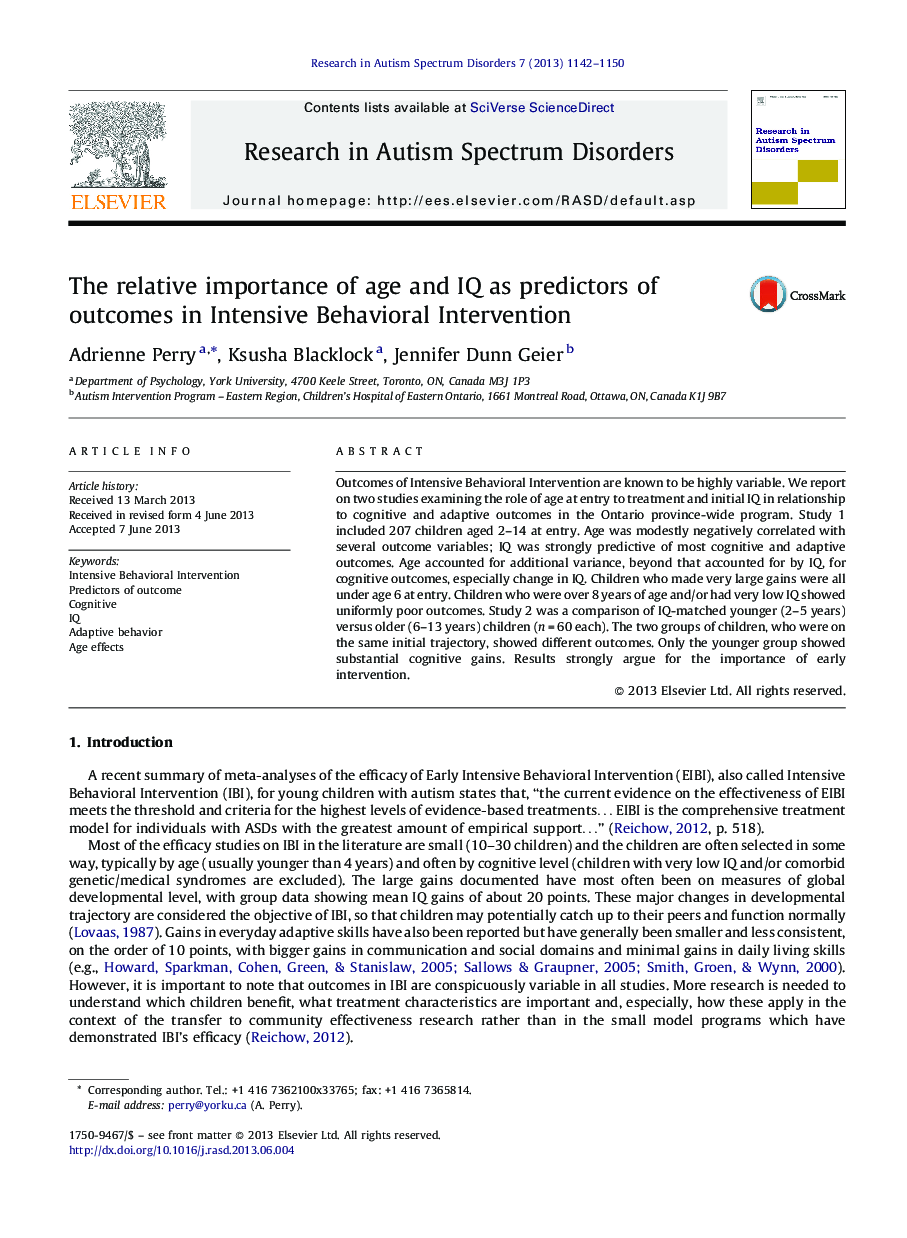| کد مقاله | کد نشریه | سال انتشار | مقاله انگلیسی | نسخه تمام متن |
|---|---|---|---|---|
| 370356 | 621860 | 2013 | 9 صفحه PDF | دانلود رایگان |

• Outcomes are highly variable in Intensive Behavioral Intervention.
• We studied initial age and IQ in predicting cognitive and adaptive outcomes.
• IQ is a strong predictor but younger age is related to making large cognitive gains.
• Children over age 8 and/or with very low IQ had uniformly poor outcomes.
• Results strongly support the importance of early intervention.
Outcomes of Intensive Behavioral Intervention are known to be highly variable. We report on two studies examining the role of age at entry to treatment and initial IQ in relationship to cognitive and adaptive outcomes in the Ontario province-wide program. Study 1 included 207 children aged 2–14 at entry. Age was modestly negatively correlated with several outcome variables; IQ was strongly predictive of most cognitive and adaptive outcomes. Age accounted for additional variance, beyond that accounted for by IQ, for cognitive outcomes, especially change in IQ. Children who made very large gains were all under age 6 at entry. Children who were over 8 years of age and/or had very low IQ showed uniformly poor outcomes. Study 2 was a comparison of IQ-matched younger (2–5 years) versus older (6–13 years) children (n = 60 each). The two groups of children, who were on the same initial trajectory, showed different outcomes. Only the younger group showed substantial cognitive gains. Results strongly argue for the importance of early intervention.
Journal: Research in Autism Spectrum Disorders - Volume 7, Issue 9, September 2013, Pages 1142–1150